Introduction
How To Attract Pigeons: Attracting pigeons to your outdoor space can be a fascinating and enjoyable endeavor for bird enthusiasts and nature lovers alike. These birds, with their gentle cooing and distinctive personalities, can add a touch of charm to any urban or suburban environment. Whether you’re a beginner looking to create a welcoming pigeon habitat or a seasoned birder hoping to enhance your pigeon-watching experience, there are several key strategies you can employ to attract these graceful birds to your surroundings.
Understanding the basic needs of pigeons is the first step in successfully luring them to your location. Pigeons, like all birds, require food, water, shelter, and a safe environment. Offering a diverse and pigeon-friendly menu of seeds, grains, and fruits can be a compelling draw. Providing a consistent source of clean, fresh water is essential for their well-being. Creating suitable roosting and nesting spots, such as ledges or nesting boxes, can also encourage pigeons to make your space their home. Moreover, maintaining a peaceful and secure atmosphere in your area will make pigeons feel comfortable and more likely to stick around.
Creating an inviting ambiance for swim pigeons involves being patient and observant. Pigeons are social birds that often flock together, so the presence of a few pigeons can attract more. Pay attention to their habits and preferences. Setting up bird feeders and baths at the right locations, such as near trees or shrubs, can create an attractive pigeon-friendly environment. Remaining consistent in your offerings and routines will help build trust with these birds over time. By employing these strategies and demonstrating your commitment to their well-being, you can establish a delightful pigeon haven right in your own backyard.
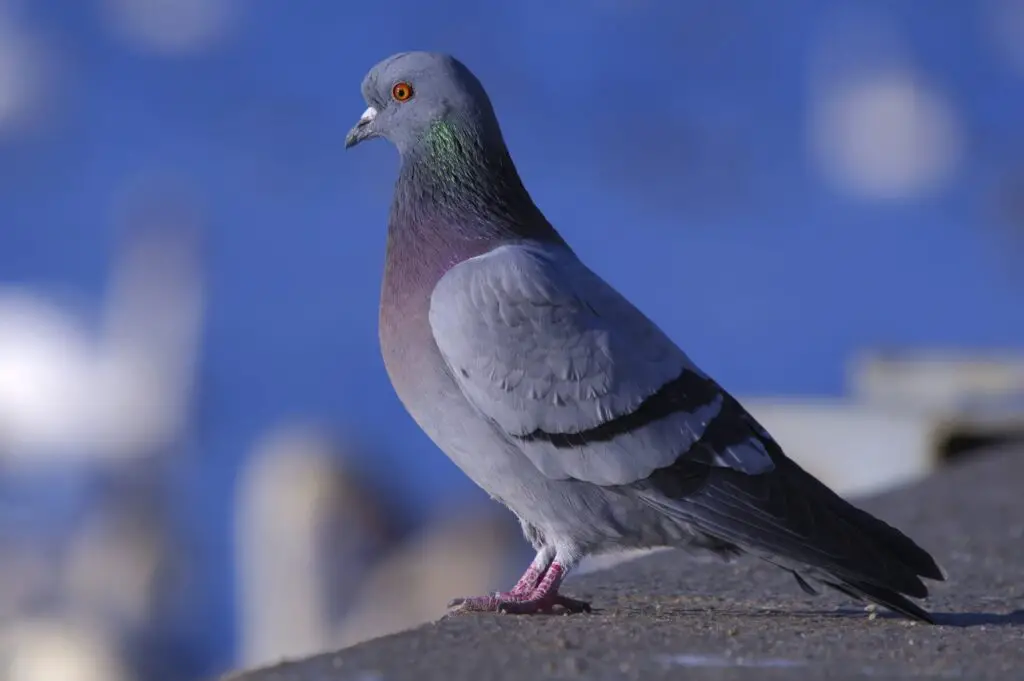
How do you get pigeons to come to you?
Feed pigeons around the same time every day to attract more.
If you keep placing the food there, the pigeon will come to expect it and eventually approach it. For example, try feeding them from 8:00 to 10:00 AM and 5:30 to 7:00 PM. However, pigeons can be spotted all day long, especially if you live near a city.
Getting pigeons to come to you requires a combination of patience, offering incentives, and creating a welcoming environment. Here are some steps to help you attract pigeons:
Provide Food: Pigeons are attracted to food sources. To get them to come to you, start by offering a variety of pigeon-friendly foods, such as grains, seeds, and small pieces of fruit. Scatter the food in an open area where you want the pigeons to gather.
Use a Feeder: You can also use a bird feeder specifically designed for pigeons or a platform feeder to offer food. Place the feeder in a location where you can observe the pigeons from a comfortable distance.
Regular Feeding Schedule: Pigeons thrive on routine, so establish a consistent feeding schedule. Offer food at the same time each day. Pigeons are more likely to come to you if they know when to expect a meal.
Be Patient: Building trust and attracting pigeons takes time. It may take several days or weeks for them to become comfortable with your presence. Be patient and avoid sudden movements or loud noises that might startle them.
Offer Fresh Water: Pigeons need access to clean, fresh water for drinking and bathing. Providing a birdbath or a shallow dish of water near the feeding area can be an additional incentive for them to visit.
Gentle Approach: When you’re near the feeding area, move slowly and calmly. Avoid making sudden gestures or loud sounds that could scare the pigeons away.
Observe From a Distance: Initially, it’s best to watch the pigeons from a distance, allowing them to get used to your presence. As they become more comfortable, you can gradually get closer.
Use a Pigeon Call: Some bird enthusiasts use a soft, gentle cooing sound to mimic pigeon calls. This can sometimes attract pigeons or encourage them to respond.
Consistency: Maintain your feeding routine and ensure that the food and water sources are always clean and fresh. Pigeons are more likely to keep coming back if they find a reliable food and water supply.
Respect Local Regulations: Be aware of any local regulations or laws regarding feeding pigeons. Some areas may have rules in place to manage bird feeding.
What smells attract pigeons?
- Bird Poop & Nests. Birds are known to be attracted to their own droppings and areas with evidence of nesting.
- The Smell of Food. Birds love the smell of food or at least the smell of stuff that indicates the presence of food.
Pigeons have a keen sense of smell, and certain scents can attract them. While pigeons are primarily attracted to food sources and familiar environments, some specific scents may be associated with food and therefore attract them. These scents can include:
Food Odors: The smell of grains, seeds, and other pigeon-friendly foods can attract pigeons. If you have these food items in your vicinity, their aroma may draw pigeons to the area.
Bread: Pigeons are often drawn to the scent of bread, as it’s a food source commonly associated with them. However, it’s important to note that while bread is attractive to pigeons, it should be provided in moderation as part of a balanced diet.
Cooking Odors: The aroma of cooked food, especially grains and cereals, can attract pigeons. If you’re cooking or preparing meals with these ingredients near an open window or balcony, pigeons might be lured by the smell.
Fruit and Vegetable Scents: Pigeons can also be attracted to the scents of fruits and vegetables, particularly those with a strong aroma. If you have a fruit tree or vegetable garden nearby, the smell may draw them in.
Spilled or Rotting Food: Pigeons are opportunistic feeders, and they may be attracted to the smell of spilled or rotting food scraps. It’s essential to keep outdoor areas clean to avoid this.
Food Waste: If there are open trash containers with food waste or discarded food items nearby, pigeons may be attracted by the scent of these leftovers.
Why do pigeons come to my balcony?
Balconies are ideal for pigeons to roost, nest, or perch. They are high up, which provides pigeons with a good field of view, helping them feel safe from all the usual dangers. Furthermore, the handrail on a balcony is perfect for perching.
Food Source: If you or your neighbors feed birds or leave food scraps outside, pigeons are attracted to the easy source of food. Pigeons are opportunistic feeders, and they’ll visit places where they can find grains, seeds, or other edible items.
Shelter: Balconies often provide shelter and roosting spots for pigeons. They seek elevated locations to rest, especially during inclement weather or at night. The ledges, beams, and alcoves on a balcony can mimic natural roosting sites in their urban environment.
Nesting Opportunities: Pigeons may also see your balcony as a potential nesting site. They build relatively simple nests in sheltered areas, and the privacy and protection offered by a balcony can make it an attractive place to lay eggs and raise chicks.
Safety: Pigeons seek out areas where they feel safe from predators and disturbances. Balconies on buildings can provide a degree of safety, as they are often less accessible to ground predators.
Flock Behavior: Pigeons are social birds and often gather in flocks. If a few pigeons find your balcony and establish it as a safe and reliable place for food and shelter, others in the flock may follow.
To manage pigeon presence on your balcony, consider taking the following steps:
Limit Access to Food: Avoid leaving food scraps or birdseed on your balcony. Pigeons are less likely to visit if there’s no readily available food source.
Block Nesting Sites: If you don’t want pigeons nesting on your balcony, use physical barriers like netting or spikes to prevent them from accessing potential nesting spots.
Regular Cleaning: Keep your balcony clean and free of debris that pigeons might use for nesting material. Regularly remove droppings and sanitize the area to discourage their return.
Deterrents: You can use visual or auditory deterrents to make your balcony less inviting to pigeons. Reflective objects, wind chimes, or scarecrow models can sometimes help.
Consult Local Regulations: Be aware of any local regulations or laws regarding pigeon control. Some areas may have specific rules about dealing with pigeons to ensure humane treatment.
What attracts pigeons the most?
How to keep pigeons away from bird feeders?
One of the key attractors to pigeons is dropped seed from bird feeders. Pigeons are attracted to this easy meal and will return once they find a bird feeder that deposits bird seed on the floor and the surrounding areas.
Pigeons are attracted to a combination of factors in their environment, and their behavior can vary depending on their needs and the local conditions. Here are some of the factors that attract pigeons the most:
Food: Food is a primary attractant for pigeons. They are opportunistic feeders and will be drawn to areas where they can find a consistent source of grains, seeds, and other pigeon-friendly foods. Providing a variety of birdseed and grains can be particularly appealing to them.
Water: Access to clean, fresh water is essential for pigeons. They are attracted to water sources for drinking and bathing. A birdbath or a shallow dish of water can be a significant draw.
Shelter: Pigeons seek sheltered and safe places for roosting and nesting. Buildings with ledges, eaves, and rooftops can provide suitable shelter, as can nesting boxes designed for pigeons.
Safety: Pigeons are more likely to be attracted to areas where they feel safe from predators and disturbances. Quiet and peaceful environments are appealing to them.
How do you gain a pigeon trust?
One way to get street pigeons to trust you is to offer them food. If you can get close enough, try holding out a piece of bread or some other type of food and see if the pigeon takes it from your hand. Once they start trusting you, you can try petting them gently on the head or back.
Gaining a pigeon’s trust can be a gradual process, but with patience and consistency, it’s certainly possible. Here are some steps to help you build trust with pigeons:
Regular Feeding: One of the most effective ways to gain a pigeon’s trust is through regular feeding. Provide a consistent and reliable source of food at the same location and time each day. Pigeons are creatures of habit and will start to associate you with a source of nourishment.
Approach Slowly: When you first approach pigeons, do so calmly and slowly. Sudden movements or loud noises can startle them. Extend your hand with food in a non-threatening manner, allowing them to come to you at their own pace.
Use Gentle Speech: Speaking to pigeons in a soft and gentle tone can help them become accustomed to your voice. Over time, they may associate your voice with safety.
Respect Their Space: Pigeons need personal space, so avoid getting too close too quickly. Give them room to feel comfortable and observe their body language for signs of stress or discomfort.
Offer a Variety of Foods: Pigeons have preferences for certain foods, so experiment with different types of pigeon-friendly treats to see what they like best. Grains, seeds, and small pieces of fruit are good options.
Avoid Sudden Movements: Sudden movements or gestures can frighten pigeons. Move slowly and calmly when you’re around them.
What is pigeon’s Favorite food?
Their diet also demands protein and fat to remain healthy, whether that’s from nuts, fruits or other animals. They do not have a “favorite food” but they enjoy eating seeds, nuts and vegetables more than anything else.
Pigeons don’t have a single favorite food, but they are known to have preferences for certain types of foods, and their diet tends to consist of a variety of items. Their diet can vary depending on what’s available in their environment. Some of the foods that pigeons commonly favor include:
Grains: Pigeons have a strong affinity for grains such as corn, wheat, barley, and millet. These grains are staples in their diet and are readily consumed.
Seeds: Various seeds, including sunflower seeds, can be a favorite among pigeons. Seeds are a good source of nutrition for them.
Fruits: Pigeons may enjoy fruits like peas, cherries, berries, and small pieces of apple. Fruits provide them with essential vitamins and minerals.
Leafy Greens: Pigeons can consume leafy greens like lettuce and spinach, although they might not prefer them as much as grains and seeds.
Bread: While bread is often offered to pigeons and they may readily eat it, it’s not the most nutritious option for them. It’s best to provide bread in moderation and supplement it with other foods.
Pigeon Feed: Commercial pigeon feed, which is specially formulated for their dietary needs, can be considered a favorite because it provides all the necessary nutrients and is designed to keep them healthy.
What do pigeons love the most?
Pigeons should enjoy some combination of wheat, cracked corn, sunflower seeds, sorghum, and millet. In order to maximize the chances of attracting them, you might want to spread out seeds on the ground or put them in some kind of tray or platform feeder on which the bird can easily perch.
Pigeons are opportunistic feeders and can consume a variety of foods. However, there are certain types of foods that pigeons tend to be particularly fond of:
Grains and Seeds: Pigeons have a strong preference for grains and seeds. Common grains like corn, wheat, barley, and millet are staples in their diet. You can attract pigeons by offering a mix of birdseed or cracked corn.
Bread: Pigeons are known to readily eat bread, but it’s important to offer it in moderation. While bread is often associated with pigeon feeding, it’s not a nutritionally complete food for them, so it’s best to supplement it with other grains and seeds.
Fruits and Vegetables: Pigeons also enjoy fruits like peas, cherries, and berries, as well as leafy greens and small bits of vegetables. Providing a variety of fresh produce can be a great way to attract them.
Water: Pigeons need access to fresh, clean water. A birdbath or a shallow dish of water can be a significant draw, especially in hot weather when water is scarce.
Pigeon Feed: You can find specialized pigeon feed at pet stores, which is formulated to meet their nutritional needs. This can be an excellent choice if you’re specifically trying to attract and care for pigeons.
Can pigeons hear human voice?
However, at the extreme ends of this spectrum, the sounds must be rather loud to be audible. (For example, the fundamental pitches from a piano range from about 28 Hz to 4186 Hz.) But what about pigeons’ hearing? Earlier tests had shown that pigeons were about as sensitive as humans between 200 Hz and 10,000 Hz.
Yes, pigeons can hear human voices. Pigeons have relatively good hearing, and they can detect a wide range of sounds, including the human voice. While their hearing is not as sensitive as that of some other animals, like certain birds of prey, pigeons are still able to perceive and react to sounds in their environment, including the sounds of humans talking.
In urban and suburban environments, pigeons often become accustomed to the presence of humans and the noises associated with human activity. They may even associate certain human sounds or voices with the availability of food, as pigeons are known to be opportunistic feeders and frequently gather in places where people feed them.
So, while pigeons can hear human voices, their reactions to these voices may depend on their familiarity with human activity and whether they associate the voices with positive or negative experiences, such as the presence of food or potential threats.
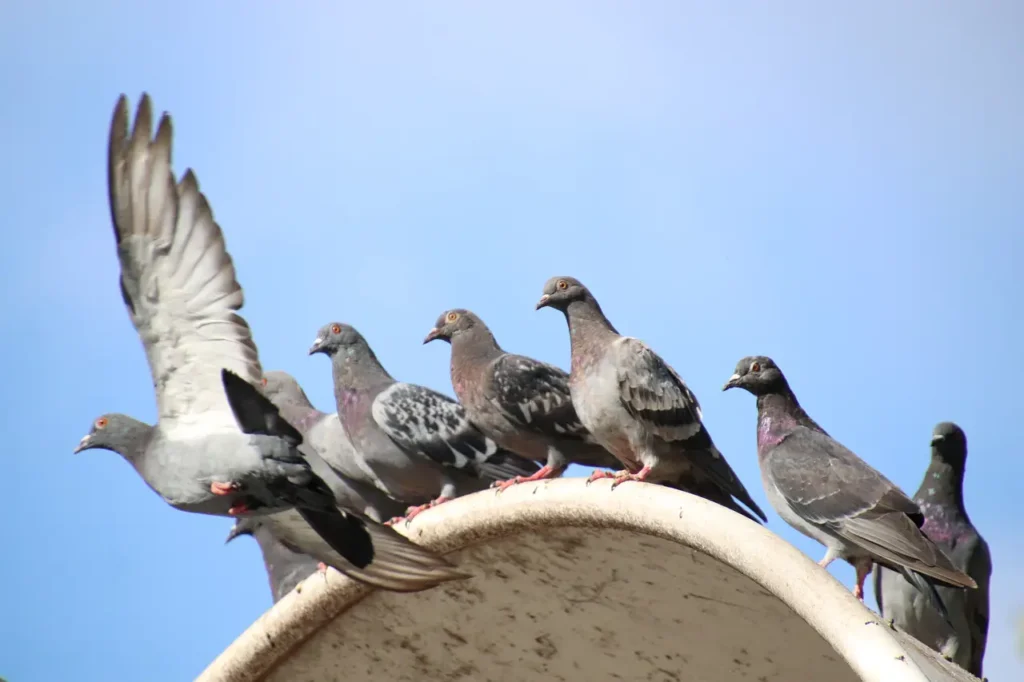
Conclusion
Attract pigeons to your outdoor space can be a rewarding experience that connects you with the beauty of nature right at your doorstep. By meeting their basic needs for food, water, shelter, and safety, you can create an environment that is not only appealing to pigeons but also contributes to their well-being. Remember that patience and observation are key virtues when it comes to attracting and nurturing a pigeon community. It may take some time for these birds to feel comfortable and trust your offerings, but the effort is well worth the joy and wonder they bring to your daily life.
As you embark on your journey to attract pigeons, don’t forget to maintain cleanliness and hygiene around their feeding and drinking areas. Regularly replenishing their food and water sources, as well as keeping them free from contaminants, will not only keep the pigeons healthy but also ensure that you continue to enjoy their presence. Be mindful of local regulations and laws regarding bird feeding and care, as they may vary depending on your location.
Creating attract pigeon friendly environment is a harmonious way to coexist with these graceful birds, appreciate their unique qualities, and contribute to the preservation of urban and suburban wildlife. Whether you’re a novice or an experienced bird enthusiast, the simple act of attracting pigeons can foster a deeper connection to the natural world and remind us of the beauty that surrounds us every day.

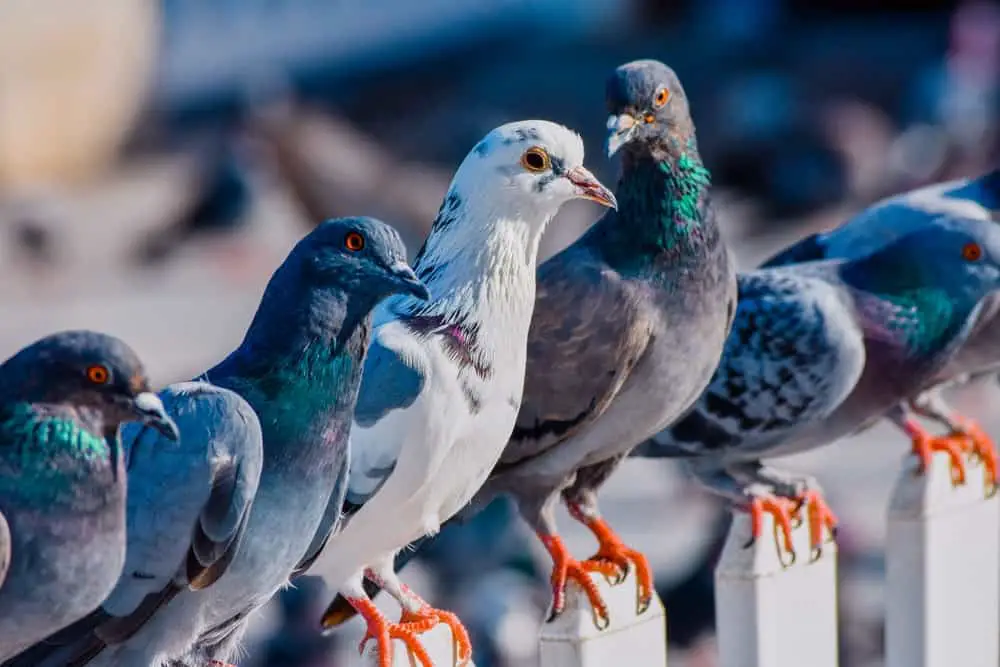
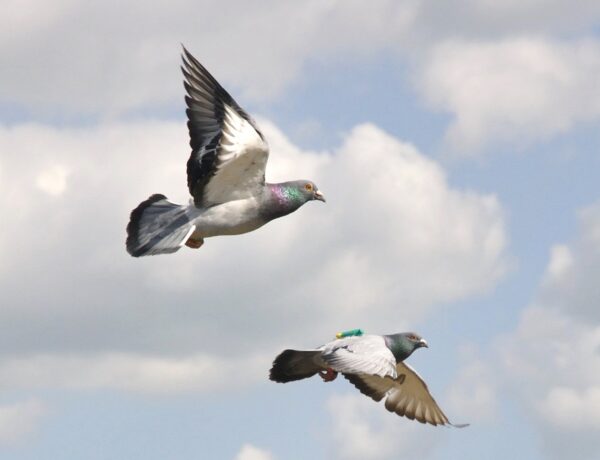
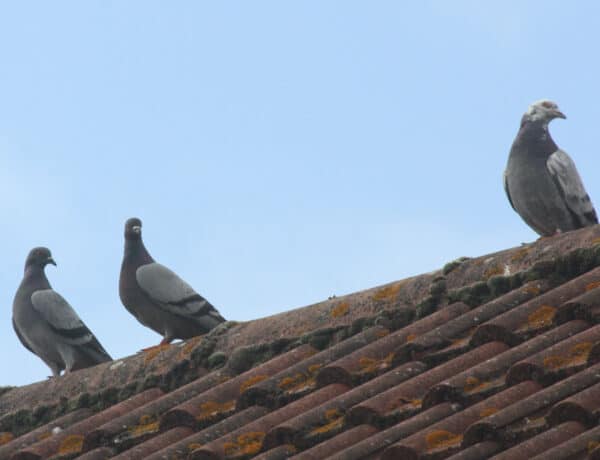
No Comments